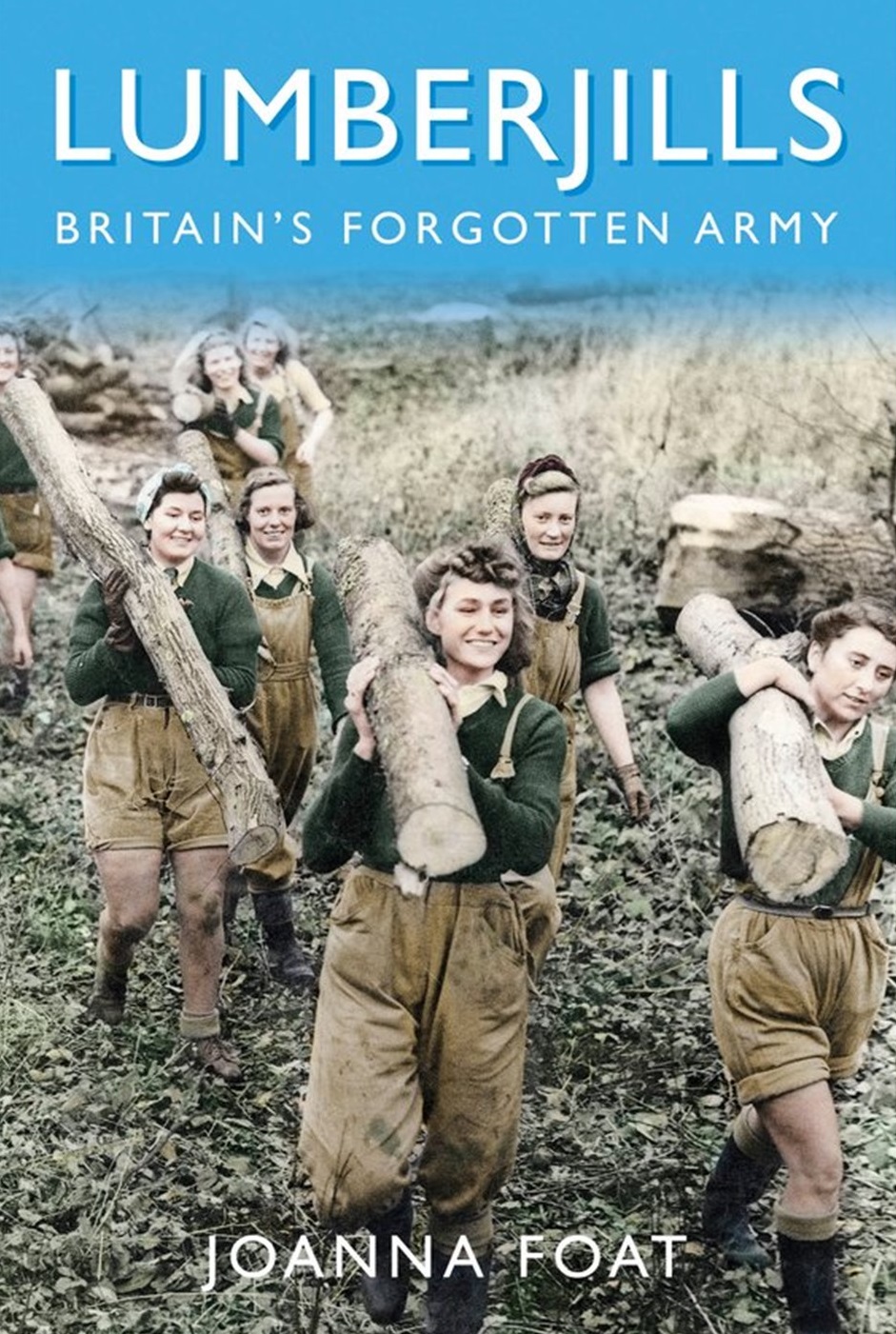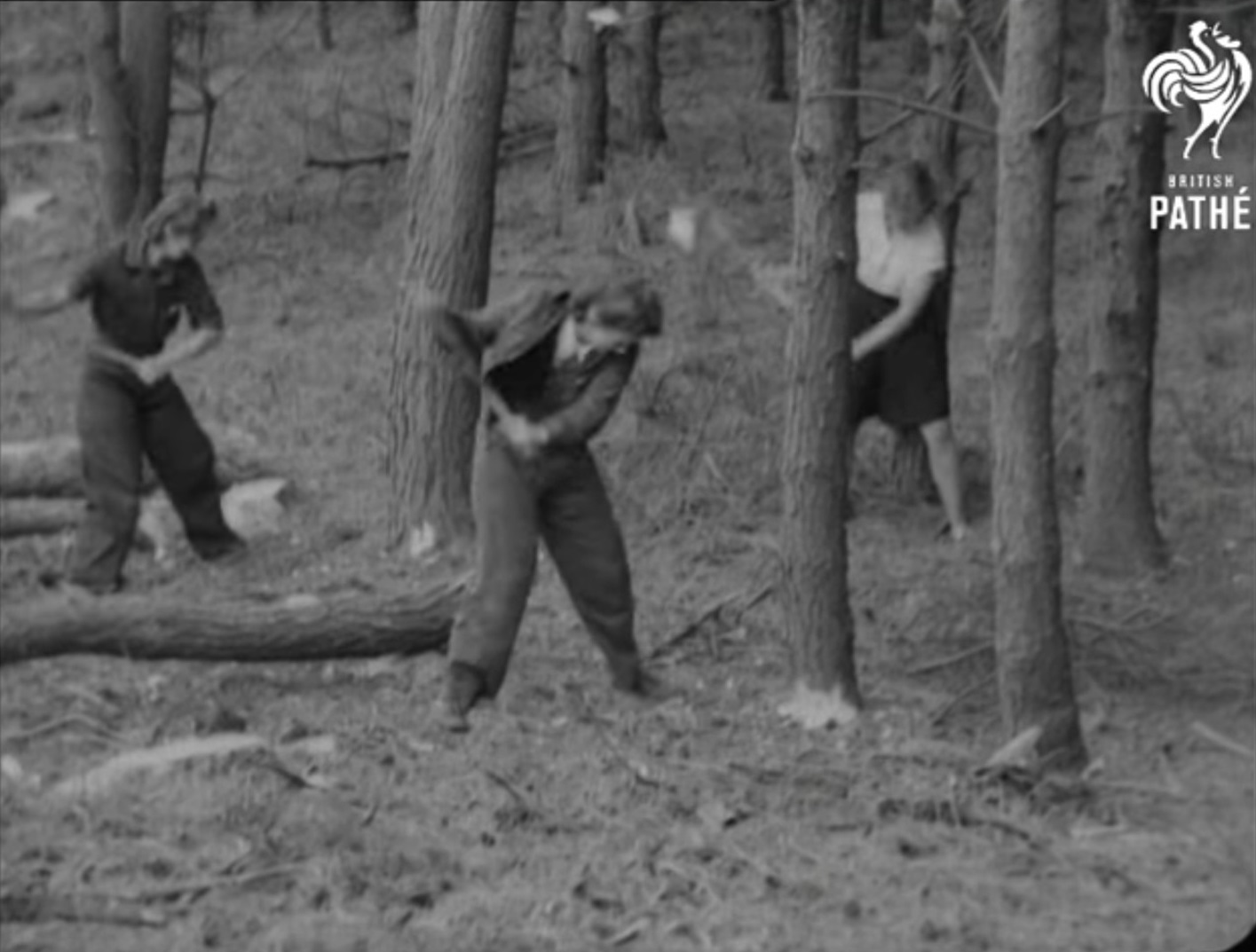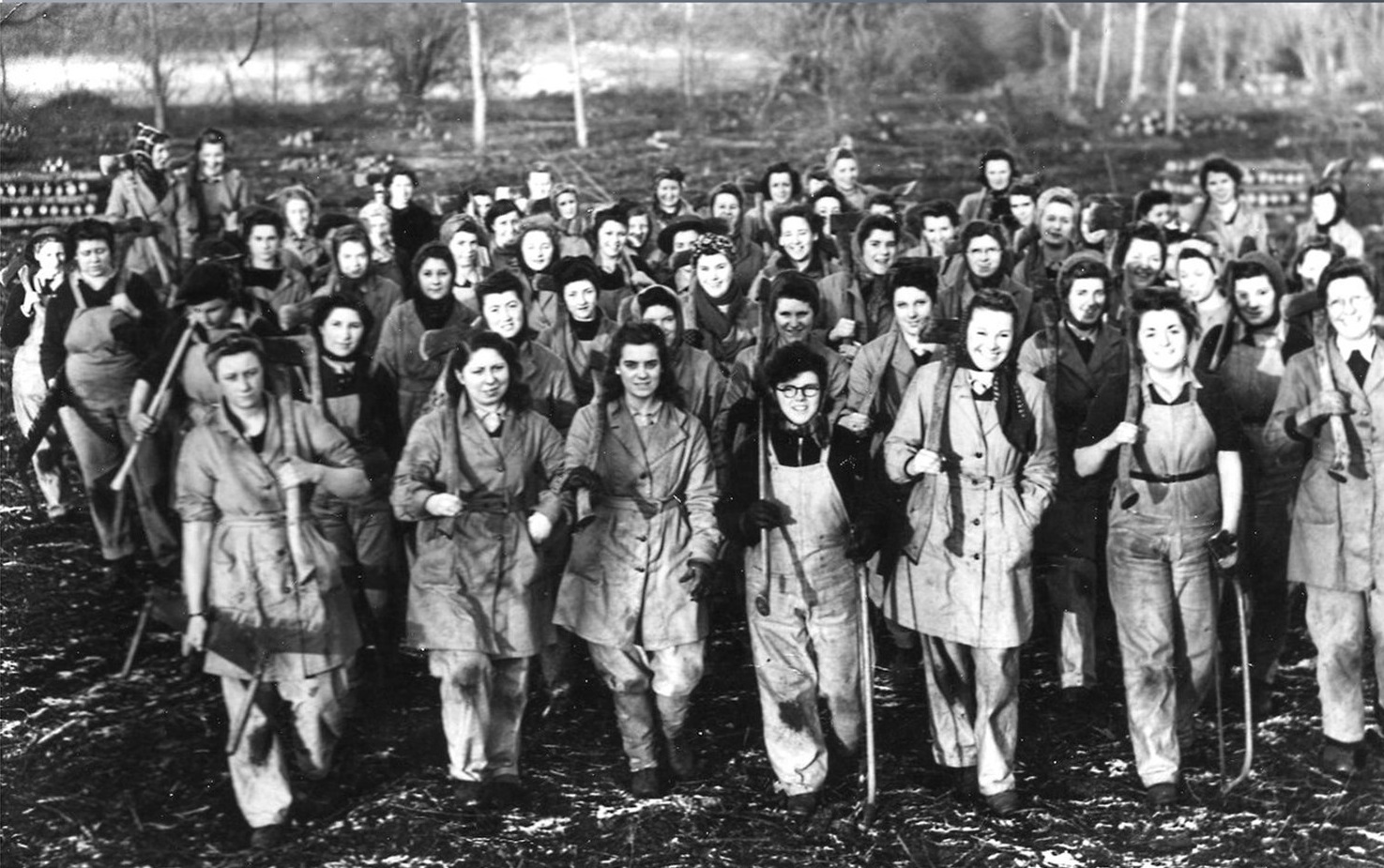 Abraham Lincoln
If given the truth, the people can be depended upon to meet any national crisis...
Abraham Lincoln
If given the truth, the people can be depended upon to meet any national crisis...
 Guildford news...
for Guildford people, brought to you by Guildford reporters - Guildford's own news service
Guildford news...
for Guildford people, brought to you by Guildford reporters - Guildford's own news service
Book Review: ‘Lumberjills Britain’s Forgotten Army’ Brings Gender Stereotypes Crashing Down
Published on: 13 Apr, 2022
Updated on: 13 Apr, 2022
By Alice Fowler
This week marks the 80th anniversary of the Women’s Timber Corps, a branch of the Women’s Land Army that worked in Britain’s forests during the Second World War.

Lumberjills Britain’s Forgotten Army by Joanna Foat.
From 1942 onwards, as many as up to 18,000 young women left home for the first time to fell trees with an axe and saw for the war effort. Doing what was thought to be ‘a man’s job’, the women, some as young as 14 years old, brought gender stereotypes crashing down.
Guildford resident Joanna Foat, whose book Lumberjills Britain’s Forgotten Army tells the story of the Women’s Timber Corps, spent two years interviewing 60 of these remarkable women, who became known affectionately as the Lumberjills.

Pathe News on Women Lumberjills in “Jolly Good Fellers“.
Joanna says: “I was shocked to discover how these women were treated at the beginning of the war. They were laughed at for their enthusiasm to offer their services, regarded as ornamental rather than useful and many timber merchants did not want women taking over the jobs of skilled men.
“In fact, the Lumberjills not only pioneered a new fashion for women in trousers, wearing jodphurs, but also proved that women could carry logs like weight-lifters, work in dangerous sawmills, drive huge timber trucks and calculate timber production figures on which the government depended during wartime.
“With their 80th anniversary, I hope to inspire women of all ages with the strength, courage and determination of the Lumberjills.”
Joanna discovered the story of the Women’s Timber Corps while working for the Forestry Commission, now Forestry England, at Alice Holt Forest, on the Surrey-Hampshire border, near Farnham from 2010 to 2014.
During her interviews, she obtained unique first-hand accounts and evocative photographs of their lives in the forest. Many photos feature the dozen Lumberjills who worked in Alice Holt Forest.
While many of these women have now passed away, their stories are told in Joanna’s book and published by The History Press in 2019.

Lumberjills Britain’s Forgotten Army by Joanna Foat.
In 1939 Britain was the largest timber importing nation in the world, importing 96% of its wood. With the advent of war, home grown timber supplies were urgently needed for pit props for the mining industry, railway sleepers, telegraph poles, gun butts, ships, aircraft, as well as packaging boxes for bombs and army supplies.
While the government at first refused to employ ‘the fairer sex,’ believing they would not cope with such tough outdoor work, from April 1942 the first women foresters took up their axes and quickly proved their worth.
Their work was undoubtedly hard but for many women it was a liberating experience. “Out in the forests away from the restrictions imposed on women by society, the women realised they could sit astride a tree, smoke a pipe and fell 10-ton trees just like the men, if they wanted to,” says Joanna.
When the war ended, however, their extraordinary efforts went unrecognised. The Lumberjills received no recognition, grants or gratuities, and the director of the Women’s Land Army, Lady Gertrude Denman, resigned in protest.
They were not allowed to keep their uniforms or attend Remembrance Day parades, as they had not been part of the fighting forces. Most went back to traditional roles of clerical and shop work, teaching, domestic service or got married.
Joanna adds: “Many of the Lumberjills I met were still upset that they remained a footnote to the Women’s Land Army, so I wanted to make sure they were remembered in history.
“Now their incredible feats of physical and mental endurance can inspire women today, especially female forestry workers and arborists across the world. Given the freedom and opportunity to work together in sisterhood out in the forest, naturally the Lumberjills were a huge success.”
Joanna gives popular talks about the Lumberjills across Surrey and beyond. She has also written a novel about these pioneering and inspiring women, which will be published later this year.
Lumberjills Britain’s Forgotten Army by Joanna Foat is published by The History Press. For further information visit www.thelumberjills.uk or https://www.thehistorypress.co.uk/publication/lumberjills/9780750990905/

Click on cartoon for Dragon story: Public Asked for Views on SCC’s Proposal for Reduced Speed Limits




Recent Articles
- Crop Fire Destroys Wheat Field on the Slopes of the Hog’s Back Near Guildford
- Thames Water Announce Hosepipe Ban – But Not for Guildford
- Letter: Normandy Proposal Needs A Proper Services Audit
- Notice: Free Bereavement Support Programme
- Normandy Housing Plan Reignites Concerns Over ‘Damage To Our Community’
- Letter: The Class of 1955 Meets 70 Years On.
- Highways Bulletin: Reimagining Parking with Green Design
- Opinion: Never Have We Needed the Benefits of the Natural World More
- SCC Calls on the Government To Protect the Environment
- Two-Week Road Closure on Portsmouth Road for Gas Network Upgrade



Search in Site
Media Gallery
Dragon Interview: Local Artist Leaves Her Mark At One of England’s Most Historic Buildings
January 21, 2023 / No Comment / Read MoreDragon Interview: Lib Dem Planning Chair: ‘Current Policy Doesn’t Work for Local People’
January 19, 2023 / No Comment / Read MoreA3 Tunnel in Guildford ‘Necessary’ for New Homes, Says Guildford’s MP
January 10, 2023 / No Comment / Read More‘Madness’ for London Road Scheme to Go Ahead Against ‘Huge Opposition’, Says SCC Leader
January 6, 2023 / No Comment / Read MoreCouncillor’s Son Starts Campaign for More Consultation on North Street Plan
December 30, 2022 / No Comment / Read MoreCounty Council Climbs Down Over London Road Works – Further ‘Engagement’ Period Announced
December 14, 2022 / No Comment / Read MoreDragon Interview: GBC Reaction to the Government’s Expected Decision to Relax Housing Targets
December 7, 2022 / No Comment / Read MoreHow Can Our Town Centre Businesses Recover? Watch the Shop Front Debate
May 18, 2020 / No Comment / Read More






Recent Comments